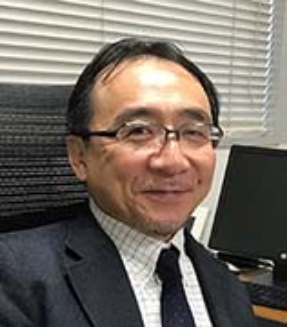
Promoting joint usage/research center projects that will support the restoration of Fukushima
after the accident together with related organizations in Japan and overseas.
Atomic Bomb Disease Institute (GENKEN) was established in 1962 for the purpose of "comprehensive basic research on the treatment and prevention of the late effects of radiation on the Atomic bomb (A-bomb) survivors and the effects of radiation on the human body". Since that, GENKEN has been conducting medical and epidemiological research on atomic bomb survivors, international medical cooperation in the area around the Semipalatinsk nuclear test site in Republic of Kazakhstan by the former Soviet Union and contaminated fields by the Chornobyl (Chernobyl) Nuclear Power Plant accident, and responded to the accident at TEPCO's Fukushima Daiichi Nuclear Power Plant. In 2013, our institute was reorganized as a university-affiliated research institute, and since 2016, together with the Hiroshima University Research Institute for Radiation Biology and Medicine and the Fukushima International Medical Center of Fukushima Prefectural University, we have organized a network of "Research Centers for Radiation Disasters and Medical Sciences", which was certified by the Ministry of Education, Culture, Sports, Science and Technology, and are promoting joint usage/research center projects that will support the restoration of Fukushima after the accident together with related organizations in Japan and overseas.
Currently, the GENKEN consists of four divisions and one center: the Division of Radiation Risk Control, the Division of Functional Cell Analysis, the Division of Functional Genome Analysis, the Division of Atomic Bomb and Hibakusha Medicine, and the Center for Joint Research on Radiation and Environmental Health Effects, and faculty members and researchers from a wide range of academic fields, such as basic medicine from at genome to individual through cell and tissue levels, clinical medicine, and social medicine. Thus, research on radiation health effects and risk control is interdisciplinary, therefore, GENKEN can be a unique research and education organization of Nagasaki University to disseminate medical information necessary for the coexistence of radiation with modern society. Many students are in charge of the three postgraduate courses including PhD course of Radiation Medical Science at the Graduate School of Biomedical Sciences, the Joint PhD course of Advanced Preventive Medicine with Kanazawa University and Chiba University, and the Joint Master course of Disaster and Radiation Medical Sciences with Fukushima Medical University. A lot of international students from Central Asia, China, Southeast Asia, etc. are enrolled every year, and they are expected to play an active role in the international community as specialists in radiation medicine, disaster prevention and risk management.
In 2025, we will celebrate the 80th anniversary of the atomic bombing. I feel that it is necessary to continue research on the health effects of A-bomb survivors in a progressive manner and to create an environment that can be passed on to the next generation. The results obtained from the A-bomb survivor research were contributed to the international medical cooperation after the Chornobyl nuclear accident and the response after the Fukushima nuclear accident. We believe that it is our responsibility to pass on these research results as an irreplaceable legacy common to all humankind, and at the same time to apply them to the safe use of radiation and the preparedness for responding to radiation exposure accidents. Furthermore, I would like to promote exploratory research in clinical medicine, especially radiation therapy, nuclear medicine, radiation emergency medicine, regenerative medicine, rare disease diagnosis, and thyroid cancer treatment, and aim to become a research institute where young scientists/physicians can learn and work with hope. At the same time, we will build a framework for social implementation of knowledge in social medicine, such as risk communication, which is one of our strengths, and provide education and research programs that contribute to radiation disaster prevention and safety assurance.
Russia's invasion of Ukraine in February 2022 has brought a sense of nuclear tension in the international community, which must not happen. As the academia, which has recovered from the devastation of the A-bomb disaster and upholds the ideal of abolishing nuclear weapons, our mission is to develop human resources who can build a framework to ensure radiation disaster prevention and global risk management, and to propose policies for the abolition of nuclear weapons in the international community. Understanding the philosophy of Planetary Health promoted by Nagasaki University, all our staff members will carry out their mission while deepening their consideration of various issues related to radiation not only in medicine but also in an interdisciplinary manner, and searching for the ideal form of society for radiation with an eye on the future.
May, 2023
Director, Atomic Bomb Disease InstituteMasahiro Nakashima, M.D., Ph.D.

